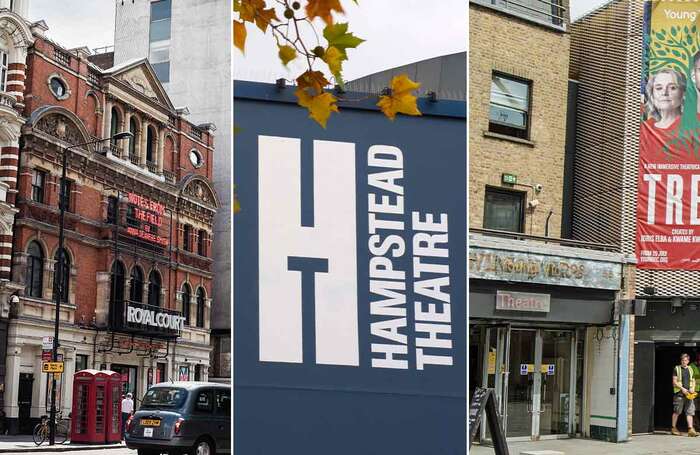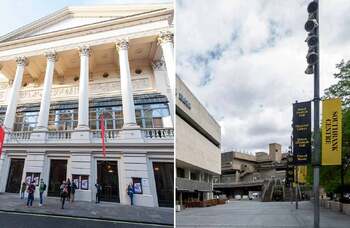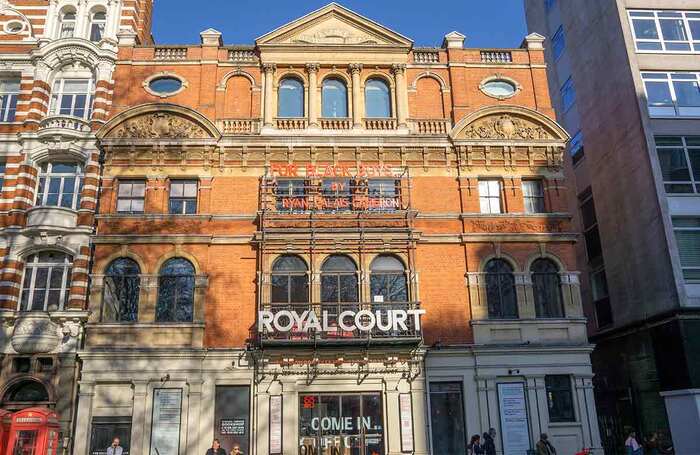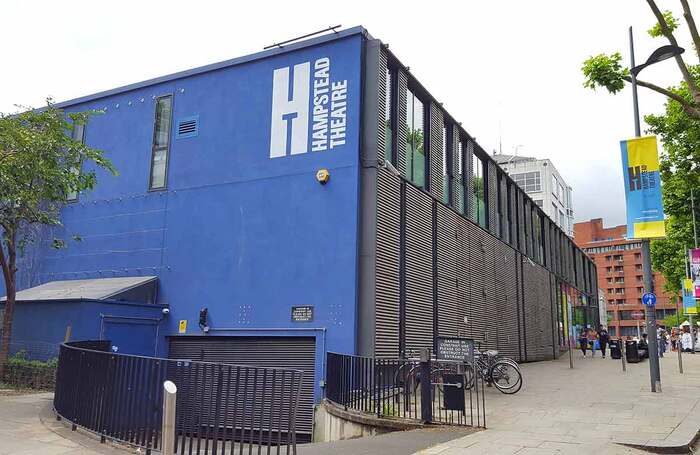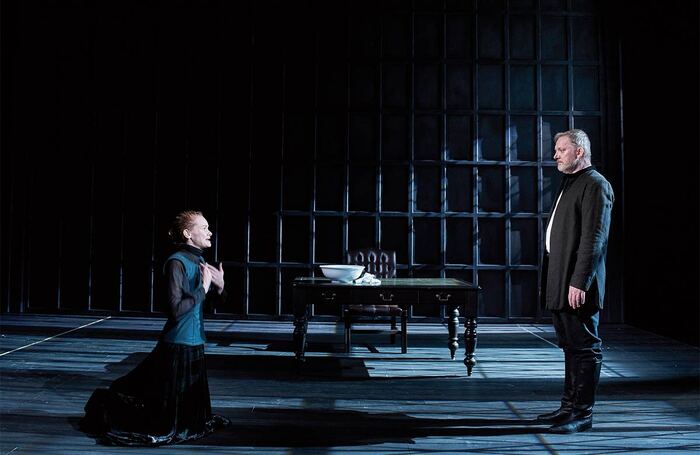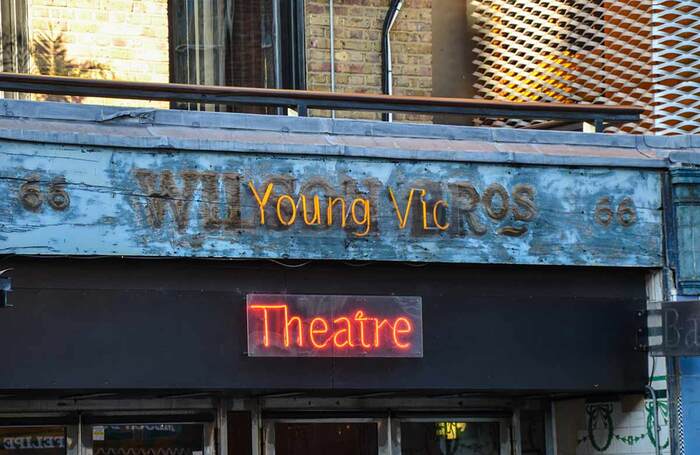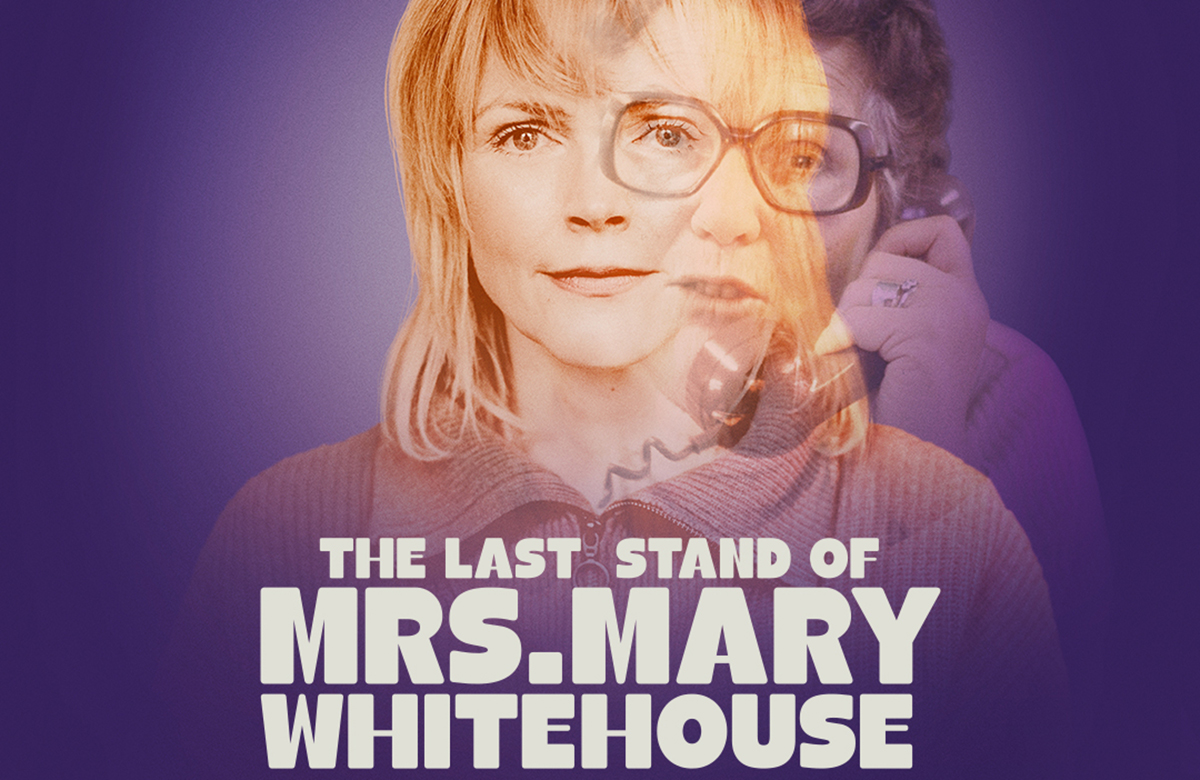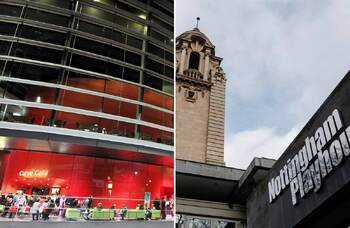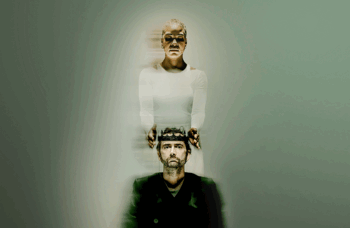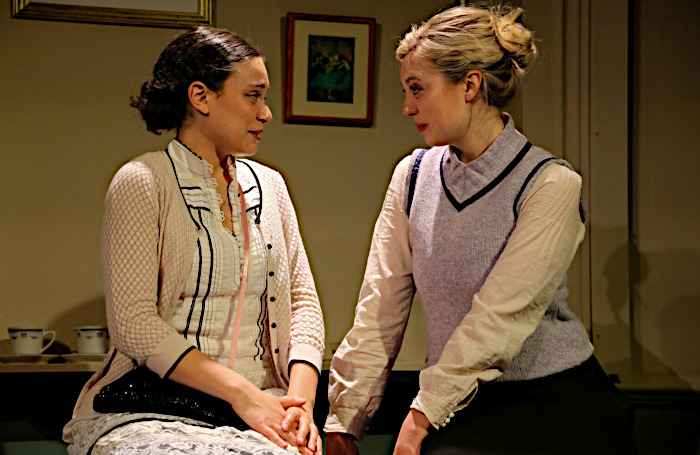‘Devastating’ financial pressures force theatres to overhaul programming
Three of London’s leading producing theatres have warned of "devastating" pressures on their finances, as changing audience patterns, rising costs and funding cuts deplete their reserves and force them to adopt more cautious programming strategies.
The Young Vic, Hampstead Theatre and the Royal Court have all highlighted difficulties they face in their latest annual accounts, covering the year to March 2023, and filed to Companies House at the end of 2023.
The Royal Court has revealed it will be looking to "find new business models to sustain the theatre", while Hampstead has said 2022/23 turned out to be "one of the most challenging" in its history. Meanwhile, the Young Vic has warned that "cost inflation and soaring energy bills" contributed to a deficit that went "way beyond budget this year, leaving unrestricted reserves depleted".
All three theatres have had to draw hundreds of thousands of pounds out of their reserves in 2022/23 and warn they are having to significantly adapt their programming strategies to survive.
Continues...
The Royal Court
London’s Royal Court’s accounts – filed under the English Stage Company Limited – highlighted that it had suffered a 5% cut to its Arts Council England funding, with chair Anthony Burton warning it would be "devastating to deal with as we approach our plans for next year".
"Ten years of standstill funding are taking its toll," he warned. Detailing the financial risks it is facing, the Royal Court said it had "well-controlled expenditure" and relied on "prudent forecasting, energetic fund-raising, diverse partnerships and being live to commercial activity" as a strategy to "plug that gap" but said: "Longer term we need to find new business models to sustain the theatre."
The report added: "The business model that has supported the right to fail alongside success is no longer sustainable. With an increase in pay and fees and the continued ambition of the playwrights for the work [they do], we will need to seek new business models and funding streams and incorporate more commercial work to increase income and security."
The report also highlighted how "audience behaviour has had a significant impact on the not-for-profit theatre sector", labelling it "difficult to predict". It also pointed to Theatre Tax Relief as a "lifeline for the arts" but said that the nature of the relief, awarded at "one point in the year... has now become a real concern for the cash flow of the organisation".
The report stated that a change in leadership, with David Byrne becoming artistic director, "offers a unique period of time... to relaunch and regenerate audiences, sponsors and donors alike" and said the theatre would "look to build reserves over the next few years to levels that provide a day-to-day fusion but also mitigate any cash flow challenges".
According to its report, ESC had total reserves of £1.42 million in the latest year, down from £2.23 million in the previous report.
Continues...
Hampstead Theatre
Writing in Hampstead Theatre’s annual report, chair Irene Dorner said the financial year 2022/23 "turned out to be one of the most challenging of Hampstead Theatre’s history".
She said that "box office revenues on the main stage fell away immediately in the late spring and early summer" and that "business did not improve significantly in the autumn". In November 2022, a projected deficit situation was "capped by Arts Council England withdrawing all of the theatre’s funding and by the resultant resignation of our artistic director Roxana Silbert".
"The year started badly. The first production on the main stage, The Breach [by Naomi Wallace and directed by Sarah Frankcom], was a complete critical and commercial failure and had to be closed early having suffered more disappointing ticket sales than anything Hampstead had presented since 2012," she said.
She said the play following it, The Fellowship, by Roy Williams and directed by Paulette Randall, was "dogged by cast withdrawal and poor reviews" and "again failed at the box office".
"As a result, the theatre entered its annual summer dark period nursing losses across the two productions in excess of £400,000," she said.
Dorner also highlighted how executive producer Greg Ripley-Duggan took sole control of the management and programming following Silbert’s departure, but said that even the theatre’s biggest commercial and critical success during the period covered by the report, Rona Munro’s Mary, starring Douglas Henshall, "failed to break even".
By the beginning of March 2023, overall losses for the year were in excess of £1 million, which accounted for a "significant proportion of the theatre’s unrestricted reserve".
"Leaving aside the trauma associated with ACE’s decision, the year was therefore marked by a complete failure of the business model the theatre had operated since 2010, in which main-stage surpluses had always supported other activities," she said.
"It was as if the theatre had, overnight, lost the audience that had sustained it for so many years," she said.
Following this, Dorner said the theatre committed to a "programme of largely toured-in work" through to the spring of 2023 "in order to minimise the risk and buy the maximum amount of time for Ripley-Duggan and the team to put together a season of work for the autumn and spring season 2023/24".
She said there were three objectives: to announce a body of work that would be "indicative of the artistic course" of the theatre; to be attractive to the existing donor base and enable the theatre to reconnect with its audiences; and to be on sale by mid-May to allow time to "build advance sales".
While admitting it was too early to comment on the success of this, she said "initial indications" were positive.
A fundraising initiative will aim to secure an additional £1.2 million in philanthropy in 2023/24 and support the "phased transition from a state-funded model to a model built entirely on earned income" and philanthropy.
According to the report, Hampstead had "unrestricted net funds" of £1 million, compared with £945,436 in 2022.
It said it had free reserves – defined as unrestricted funds less fixed assets – of £934,75, and that it would be "reviewing ways to boost reserves to a level that they can provide some cushion against downturns in income or unexpected expenditure".
Continues...
The Young Vic
Chair Glenn Earle said in the Young Vic’s report that 2022/23 brought the "Young Vic and the whole sector significant challenges and shocks".
"Cost inflation, energy prices, summer heat, unpredictable audience patterns and extensive show cancellations all impacted our resilience," he said.
The report itself noted how the theatre was "blighted by the ongoing aftershocks of the pandemic – both audience booking patterns and regularity, and company sickness and ill-health".
"Despite contingency and cover plans, we very regrettably had to cancel 41% of the Mandela run, which had a significant impact on our sales income for that show and on building trust and confidence in our bookers," it said, adding the death of the Queen in 2022 on the opening night of Who Killed My Father, adapted by Ivo van Hove, impacted press coverage and "certainly affected public behaviour and interest in the short weeks of the run that followed".
It also said there were higher than expected costs on Oklahoma! and Mandela, and that Mandela achieved 53% of sales targets, after refunds were issued.
In addition, it said "intense heat earlier that summer" combined with rail and Tube strikes all contributed to an audience "still rediscovering a theatregoing habit".
"This external movement, which includes cost inflation and soaring energy bills, hit a budget already drawing on reserves," it said.
The report also noted how standstill ACE funding for a decade had made the "inflationary gap" wider.
Like others, it welcomed TTR but said, as claims are received some time after the end of the year, it requires "careful cashflow planning".
The report said that the net result was an in-year deficit of £2.5 million, compared with a deficit of £385,165 in 2021/22 and a surplus of £2.4 million in 2020/21.
"This three-year comparison clearly shows the spending down of funds received in 2020/21 during the following two years and especially this year. Deficits were budgeted this year and last, but as noted elsewhere in this report, a number of factors, including audience booking patterns and regularity, company sickness and ill-health and rising energy and material costs led to a deficit way beyond budget this year, leaving unrestricted reserves depleted," it said.
The report said the theatre aimed for operating reserves of £1 million, of which £750,000 should be unrestricted. The recent accounts show unrestricted reserves of £483,066, representing 64% of its target.
"Additional strains on the operating budget meant drawing deeper on unrestricted reserves this year than anticipated and put particular pressure on cash flows during the final quarter," it said.
The company’s plan for the three years to March 2026 includes delivering "high impact productions and projects that will maximise audiences and participation and have the potential to attract additional funding", the Young Vic’s report said.
All three theatres declined to comment on the annual reports when contacted by The Stage.
Production News
Recommended for you
Production News
Recommended for you
Most Read
Across The Stage this weekYour subscription helps ensure our journalism can continue
Invest in The Stage today with a subscription starting at just £7.99
